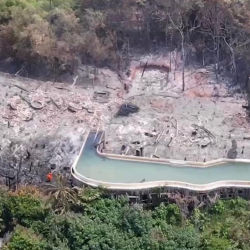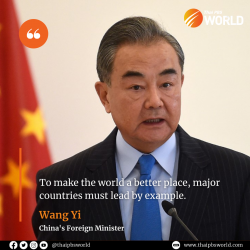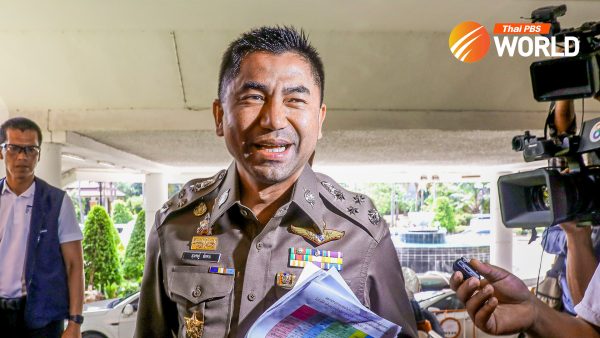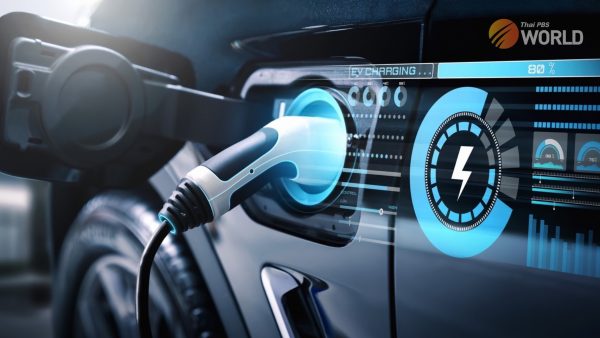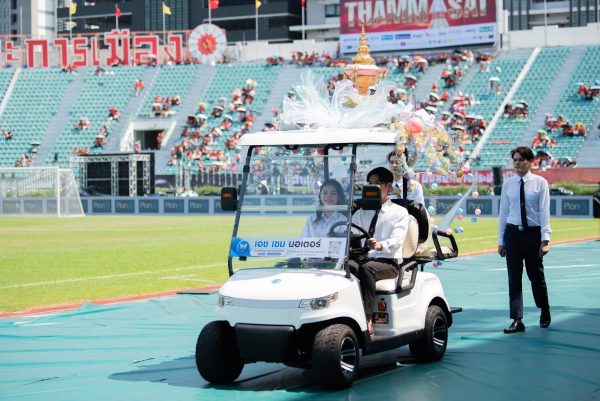Thailand is transitioning to an endemic, so what happens now if you catch COVID?

With COVID-19 now spreading at a rate of more than 20,000 officially confirmed new infections per day, everyone is at risk of catching the disease. So, many people will be wondering what happens if they do get infected.
Thai PBS World interviewed a sample of COVID-19 patients to see how they are coping at a time when the government is gearing up to treat the disease as endemic.
When you test positive…
Hotel worker Mekin said an ATK test showed he was positive on the morning of March 3. Authorities had launched the so-called Outpatient Self Isolation scheme just two days earlier, but its implementation was still patchy and confusing.
“I turned up at the hospital where I’ve been eligible for free medical services under social security scheme only to be turned away,” recounted Mekin, who spoke on condition his surname was withheld.
“Staff just told me to book the RT/PCR test via the QueQ app. I was not even advised about my rights to social security.
Mekin said he opened the app and found that there were no services immediately available to book. So, he turned to a well-known volunteer network – which came to fetch him from his home later that evening and took him to Prachaniwet Sport Center in north Bangkok, where a triage hub has been set up.
“There was neither medicine nor food when I arrived. Officials there did not provide any care,” Mekin said. “I was at a loss. The conditions of the facilities were not good. I [finally] received some food at 8pm.”
After spending the night there, he was given just basic medicines normally used to treat a common cold. He then requested an RT-PCR test at a hospital where he is entitled to free medical treatment under the social security scheme. He was told the soonest available appointment was on March 7.
Feeling uncomfortable at the triage center, he asked for permission to check out. Officials allowed him to leave but only if someone came to pick him up.
Mekin has now rented a room to isolate from his family members and is praying that he will get proper treatment.
“If possible, I want to go to a hospitel,” he said.
Worried about his vulnerable family members, Mekin is not interested in going back home or joining the home isolation scheme. “At home are my six-year-old son, my 85-year-old father-in-law, and my 78-year-old mother-in-law,” he said.
Thailand’s daily COVID-19 cases forecast to reach 40,000-50,000 in mid-April
Current govt policy on treatment
Public Health Ministry spokesman Dr Rungruang Kitpati said Thailand’s COVID-19 situation was now transitioning from end-of-pandemic to the endemic stage. He said the endemic stage would likely start around early July, when COVID-19 patients would be treated the same as patients with other common communicable diseases, such as influenza.
For now, those with minor or no symptoms would be treated as outpatients. Simply put, they must take care of themselves with medicines prescribed at home. Only those with severe symptoms or significant risks of developing serious conditions will be admitted to the hospital.
National Health Security Office (NHSO) secretary-general Jadej Thammatacharee even suggested that people who tested positive for COVID but had mild symptoms and could isolate and treat themselves with common medicines did not need to call the 1330 hotline or inform authorities.
Confident about home isolation?
After testing positive for COVID-19 via an ATK on February 23, factory worker Saowalak Somkul had no worries about going into home isolation (HI) as she lives alone. Also, she thought her choice of HI would help reduce the government’s COVID-19 expenses.
“What I didn’t know was that I could be left on my own,” said the 44-year-old.
Saowalak explained that the 1330 hotline for HI patients was always busy. She considered herself lucky when someone finally answered her call. The first time she got through, the line went dead as she was talking. The second time, she managed to get advice about registering herself on the NHSO website and contacting NHSO via Line.
Saowalak was initially told it might take NHSO six hours to respond. After six hours had passed, she contacted them via LINE and received a chatbot reply saying that delays were possible when there were so many patients. She tried calling the NHSO hotline again but suffered the same difficulties getting through.
A few days ago, NHSO said its hotline had been flooded with 70,000 calls per day, making it impossible to answer all inquiries.
“So, after discovering I had caught the new coronavirus, I spent the next five days alone. No one sent me medicines or food. It was different from what I’d heard in news reports,” Saowalak said of her experience. “If you are ill, all alone, and not sure about your own health condition, you will feel intense stress like me.”
On February 28, she made the decision to rush to the hospital. However, the doctor there refused to give her Favipiravir, explaining that the anti-COVID pills were not available for people in home isolation.
“I don’t think this makes sense. My friend received this drug from another hospital even though she is also in HI,” Saowalak said, complaining that medical facilities were using different standards.
Fortunately, Saowalak eventually recovered from COVID-19 and is now back at work.
BA.2 sub variant of Omicron becoming dominant strain in Thailand
Waitlist and more…
Duangchan (not her real name), a 52-year-old technical officer at a state enterprise, said her ATK test showed she had caught the coronavirus on February 23. She quickly registered her status with the NHSO via both LINE, website and telephone. She even called the Pathum Thani Health Office and a local health-promotion hospital.
Realizing she could not stay at home with her elderly parents and 11-year-old son, Duangchan took a drive-through RT-PCR test the same day in the hope of being admitted to a hospitel or hospital. But after finding that no hospitel beds were available, she added her name to waitlists at several hospitals.
By the time she was finally admitted to a hospitel on February 27, it was too late – she had spread the virus to her family. Her son tested positive on February 26 and her 80-year-old mother was confirmed infected the following day.
Duangchan has no complaints, though, about the difficulties her family has faced in this COVID-19 battle.
“I understand [the problems] because the country has now had a huge number of COVID-19 patients,” she said. “Also, I have fallen ill before while studying overseas and it was much harder to access medical help there.”
Will COVID ease soon?
The Public Health Ministry forecasts the number of new infections will begin to slow down around the middle of March, providing that people comply strictly with disease-control measures, delay unnecessary travel, avoid gatherings, and take booster shots. The situation should then start improving. However, in the worst-case scenario, new infections could reach 100,000 a day by the middle of April.
By Thai PBS World’s General Desk

